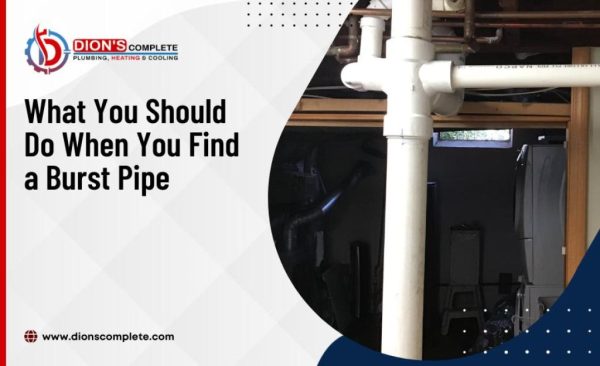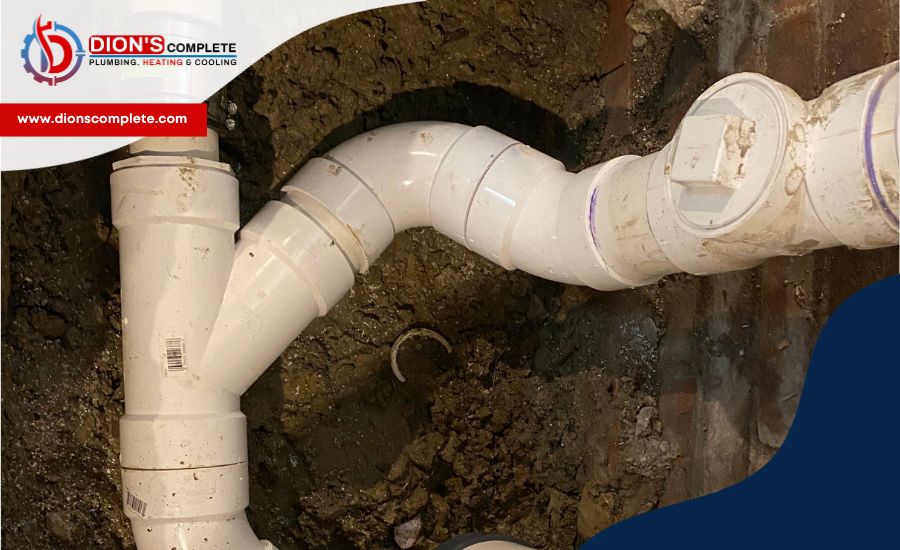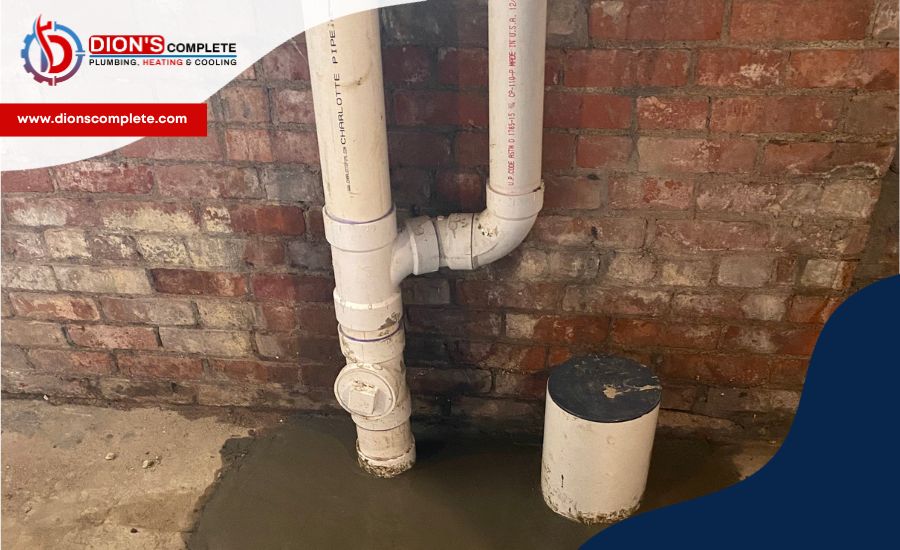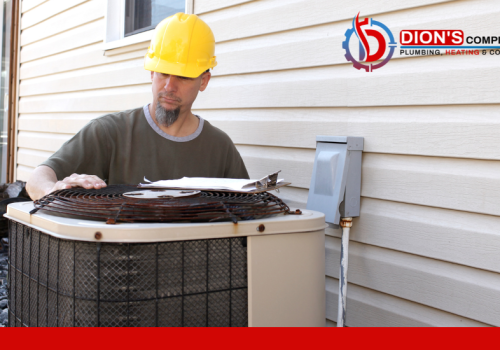When disaster strikes in the form of a burst pipe, quick and informed action can make all the difference. In this comprehensive guide, we'll explore the causes of burst pipes, immediate actions to take, and steps to minimize water damage. We'll also delve into preventive measures for the future, working with insurance, and how general plumbing repairs can help. Let's dive in.
Understanding the Causes of Burst Pipes
Before talking about steps to take to address bust pipes, it is ideal to familiarize yourself with the causes as prevention is always better than cure.
Corrosion and Rust
Beneath your home's surface, imbalances in water pH and high iron concentration can quietly corrode your pipes, weakening them over time. Learn how these factors lead to corrosion and what you can do about it.
The insidious nature of corrosion and rust makes it one of the most common reasons for burst pipes. Over time, imbalances in water pH and a high concentration of iron can silently eat away at the inner walls of your pipes. This gradual deterioration weakens the pipes, making them susceptible to bursting.
The solution begins with monitoring your water quality. Regular checks for pH imbalances and the presence of rust can provide early warning signs. If detected, it's crucial to address these issues promptly to prevent further corrosion.
Freezing Conditions
As winter sets in, the dangers of freezing water within your pipes become all too real. Discover how frigid temperatures can wreak havoc and how to safeguard your plumbing.
Cold weather can turn water into an unforgiving force within your pipes. When water freezes, it expands, putting immense pressure on your plumbing. If not addressed, this pressure can lead to ruptured pipes, causing a mess that no homeowner wants to deal with.
To combat freezing conditions, proper insulation is your best friend. Insulating pipes in vulnerable areas of your home can help prevent water from freezing within them. This small investment can save you from costly repairs and headaches down the road.
Pipe Movement
Temperature fluctuations and water pressure changes can cause your pipes to shift and, eventually, burst. Find out why this happens and how you can prevent it.
The unseen stressors on your pipes can be just as damaging as the visible ones. Temperature fluctuations and fluctuations in water pressure can cause pipes to shift, twist, and ultimately rupture.
Understanding these movements is key to preventing future bursts. By securing your plumbing pipes properly and allowing for expansion and contraction, you can mitigate the risks associated with these shifts.
Clogs and Water Pressure
Understanding the relationship between pipe clogs, increased water pressure, and pipe bursts is crucial. Learn how to identify and rectify potential clogging issues.
The delicate balance between water pressure and clogs can lead to disastrous results. A blocked pipe can act as a bottleneck, causing water pressure to build up behind it. When the pressure becomes too great, your pipes may give way, resulting in a burst.
Regular maintenance is your best defense against clogs. Regularly inspect and clean your drains to prevent obstructions from forming. Doing so can help maintain a healthy flow and avoid excessive pressure.
Immediate Actions to Take
Now that you know what causes a burst pipe, here are some initial steps to take as soon as one of these telltale signs surfaces.
Shutting Off the Water
In the event of a burst pipe, the immediate action is to locate and shut off the main water supply. Discover why this step is vital and how to do it.
The moment you discover a burst pipe, your first course of action should be to shut off the water supply. This is the most effective way to stop the flow of water and prevent further damage.
Locating the main water shut-off valve in your home is crucial. It's typically located near the water meter or where the main water line enters your home. Familiarize yourself with its location ahead of time to avoid frantic searching during a plumbing emergency.
Draining the System
To relieve pressure and minimize damage, it's essential to open faucets and flush toilets. Learn how this simple step can make a big difference.
After shutting off the water supply, the next step is to relieve the pressure within your plumbing system. Open faucets all over your house, then flush the toilets to do this.
By allowing the remaining water to flow out of the system, you reduce the pressure that can lead to further damage. This simple action can make a significant difference in the extent of the water damage you'll need to address.
Contacting a Plumber
While DIY repairs might be tempting, there are potential risks involved. Explore the benefits of professional plumbing intervention and when it's the right choice.
After taking immediate steps to mitigate the damage, it's crucial to contact a professional plumber. While DIY repairs can be tempting, burst pipes often require specialized knowledge and equipment to be properly fixed.
Professional plumbers have the expertise to assess the extent of the damage and make necessary repairs swiftly. Attempting complex plumbing repairs without the right skills can lead to more problems and added expenses in the long run.
Minimizing Water Damage
After addressing the immediate actions to take when dealing with a burst pipe, the next critical step is minimizing water damage. Swift and efficient damage control can significantly impact the extent of repairs needed and the cost involved.
Water Removal
Preventing prolonged water exposure is key. Find out how tools like wet/dry vacuums can help you remove water effectively.
Swift action is essential to minimize water damage. Water removal should be your top priority once the immediate steps are taken. Wet/dry vacuums are valuable tools for efficiently extracting water from affected areas.
Investing in a reliable wet/dry vacuum can make a significant difference in preventing further damage to your home. The quicker you remove the water, the less time it has to seep into walls, floors, and furniture.
Increasing Ventilation
Fans and dehumidifiers play a crucial role in drying out affected areas. Learn how to improve ventilation for a quicker recovery.
After removing the water, the next step is to facilitate drying. Fans and dehumidifiers are indispensable tools in this process. Proper ventilation helps prevent mold growth and speeds up the drying of your home.
Position fans strategically to promote airflow and use dehumidifiers to extract moisture from the air. This combination will help ensure that your home dries out thoroughly and quickly.
Addressing Waterlogged Items
Your possessions don't have to be a total loss. Discover tips for salvaging and drying items affected by water damage.
Dealing with waterlogged personal possessions can be emotionally challenging. However, many items can be salvaged if you act promptly and follow the right steps.
Begin by separating salvageable items from those that are beyond repair. For salvageable items, gently clean and dry them. Upholstered furniture, for instance, can often be saved if dried properly. However, electronics and appliances may need professional evaluation.
Preventive Measures for the Future
While addressing a burst pipe is crucial, preventing such incidents from happening in the first place is equally important. Here are proactive steps you can take to safeguard your home against future burst pipes.
Insulating Pipes
Properly insulating your pipes can prevent freezing and future bursts. Learn about insulation options and how to apply them.
Preventing burst pipes begins with insulation. Insulating your pipes, especially those in vulnerable areas like crawl spaces and attics, is essential for protecting them from freezing temperatures.
There are various insulation options available, including foam sleeves and heat tape. Consult a professional plumber to determine the best insulation solution for your specific needs and climate.
Monitoring Water Quality
Stay ahead of corrosion by monitoring water quality. Understand the importance of checking for pH imbalances and rust.
Proactive plumbing maintenance involves monitoring your water quality. Regularly check for signs of pH imbalances and rust. These can be early indicators of corrosion in your pipes.
If you notice any irregularities, consult a water treatment professional to address the issue promptly. Maintaining balanced water chemistry can significantly extend the life of your plumbing system.
Regular Plumbing Checks
Don't wait for a crisis. Schedule routine plumbing inspections to catch potential issues before they become disasters.
Preventing burst pipes is not only about addressing problems when they arise but also about proactive maintenance. Regular plumbing checks by a licensed professional can help identify potential issues before they escalate into costly plumbing emergencies.
During these inspections, plumbers can identify and address corrosion, leaks, and other concerns that might lead to burst pipes. These routine checks are a small investment that can save you from significant repairs down the line.
Working with Insurance
When you're faced with the aftermath of a burst pipe, your homeowner's insurance can be a valuable resource for covering the costs of repairs and restoration. Here's how to navigate the insurance process effectively.
Documenting the Damage
When dealing with insurance, documentation is key. Learn why taking photos and keeping repair receipts is crucial.
Navigating the insurance claims process requires careful documentation of the damage. As soon as a burst pipe incident occurs, start by taking clear photographs of the affected areas and the damage sustained.
Additionally, keep all receipts related to repairs and mitigation efforts. This paper trail will be invaluable when working with your insurance provider to file a claim.
Understanding Your Coverage
Explore what typical homeowner insurance policies cover and consider additional coverage options to ensure you're protected.
Understanding your homeowner insurance policy is vital when it comes to burst pipe incidents. Typical policies often cover damage resulting from sudden and accidental events, including burst pipes.
However, it's essential to review your policy and understand its limitations. Some policies may not cover damage caused by wear and tear or lack of maintenance. Consider additional coverage options or endorsements to ensure you're adequately protected.
Call Dion’s Complete When Coming Across a Burst Pipe
In the aftermath of a burst pipe incident, you don't have to face the challenges alone. Dion's Complete, located in Brighton, Michigan, stands ready to provide the expertise and services you need to restore your home and prevent future plumbing issues.
Dion's Complete boasts a team of highly skilled and experienced plumbers who are dedicated to resolving your plumbing problems efficiently and effectively. Whether you're dealing with a burst pipe emergency or seeking routine maintenance, you can trust our professionals to deliver top-notch service.
Our experts are well-versed in handling a wide range of plumbing issues, and their commitment to quality ensures that your plumbing system is serviced by the best plumber Brighton residents will ever see. When you choose Dion's Complete, you're choosing excellence in plumbing services.
Frequently Asked Questions
What are the most common reasons for pipe bursts?
Burst pipes can result from various factors, including corrosion, freezing conditions, pipe movement, and increased water pressure. Understanding these causes is crucial for prevention.
How can I tell if a pipe has burst if there's no visible flooding?
Not all burst pipes result in visible flooding. Look for signs such as reduced water pressure, unusual noises, or damp spots on walls and ceilings.
Are burst pipes covered by standard homeowner insurance?
Typically, standard homeowner insurance policies cover damage caused by burst pipes, but coverage may vary. Review your policy and consider additional coverage if needed.
How long does it typically take to repair a burst pipe?
The repair time can vary depending on the extent of the damage and the complexity of the repair. Professional plumbers can provide a more accurate estimate based on your specific situation.
Can old plumbing systems be retrofitted to prevent pipe bursts?
Yes, older plumbing systems can often be retrofitted with insulation and other preventive measures to reduce the risk of burst pipes. Consult a professional plumber for recommendations.







